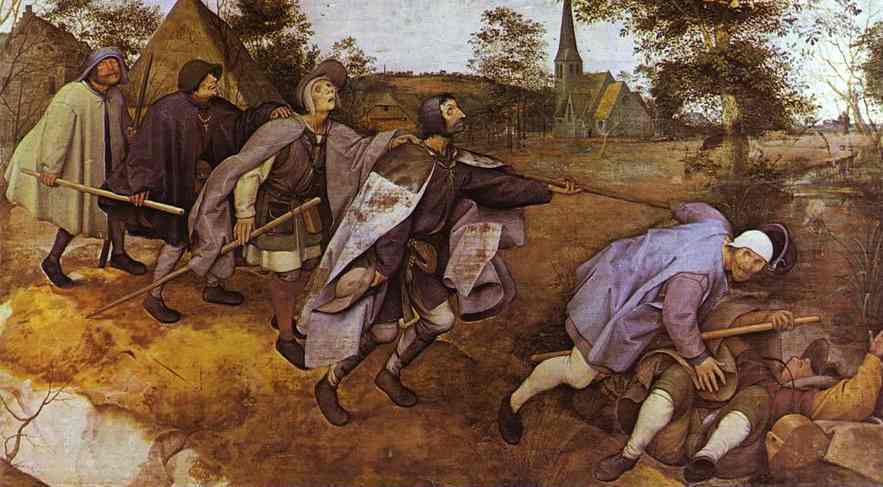The Sermon
By Catherine B, a Reader at St. Mary's
Let’s go back in time and space to the Kingdom of Judah about 6 centuries before Christ. Babylon is the big superpower and threat, and Nebuchadnezzar, the Babylonian king, has begun raiding Jerusalem, taking King Jehoiachin (aka Jeconiah) into exile, along with the sacred temple vessels. Zedekiah has been installed as a puppet king by Nebuchadnezzar, but has decided to rebel. This puts Jerusalem and her inhabitants in a very dangerous position.
Under the LORD’s instructions, Jeremiah has been hanging around Zedekiah’s court and the temple wearing a yoke of straps and bars. He has been urging everyone not to resist Nebuchadnezzar, but rather to submit to the yoke of Babylon in order to preserve Jerusalem and save their skins. They should not to listen to anyone who says otherwise – they are speaking falsely.
But the people don’t like that message. Meanwhile other prophets are trying to keep everyone’s spirits up. One is Hananiah. The LORD has apparently told him that he’s broken the yoke of the king of Babylon and within 2 years all will be restored: the exiles will return, King Jeconiah restored to the throne, the temple vessels reinstated. It’s a much more palatable message than Jeremiah’s.
Jeremiah is scathing and mocks Hananiah – Yes indeed may this come about! But when in history have prophets ever foreseen peace and prosperity? Never! They always foresee war, famine and pestilence. However, when peace and prosperity come about, we’ll know that this prophet has spoken the truth, that the LORD has sent this prophet.
If we’d read on, we’d hear how Hananiah responds to this mockery, by breaking Jeremiah’s yoke. “The LORD says: This is how I will break the yoke of the king of Babylon within 2 years”.
And then we’d have heard The LORD’s promise of an even greater yoke, and of Hananiah’s fate.
Jeremiah’s message was not well received. Speaking truth to power makes you unpopular. It seems no one listened and he had no friends. I’m sure we can all think of similar examples in our own recent political and world history.
But hold on a minute. Jeremiah may not have been popular, but someone must have been listening. Someone noted the words that he spoke, remembered the very visual acts he performed and wrote them down forming the book bearing his name. And others preserved the book, made copies, handed it down through the generations. Jeremiah might not have changed the minds of the authorities at the time, but later on, when the exiled people of Judah were pondering their lot, they remembered Jeremiah’s words and began some serious thinking about what had gone wrong with their relationship with God. Someone, somewhere had (eventually) welcomed the words of the prophet.
Jeremiah hated being a prophet. But for 40 years he remained a faithful disciple, faithfully proclaiming God’s message.
As we’ve explored Matthew Chapter 10 recently, we’ve looked at the role of Jesus’ disciples. They are to share the good news of God’s Kingdom amongst the people of Israel. They should speak, heal and cast out demons. They should rely solely on the goodwill and hospitality of those they meet for their basic needs.
This mission will be costly. There will be conflict with their families and friends. They will be mocked and mistreated. They will become unpopular.
Today’s short reading rounds the chapter off. We now hear that anyone who welcomes a follower of Jesus, will welcome Jesus himself, and indeed welcome the God who sent him. There will be people who will provide for their basic needs – if even just a cup of water. There will be people who will understand them to be righteous, and welcome them because of that. There will be others who understand them to be prophets, and welcome them because of that.
And whoever welcomes the disciples, from the basic cup of water to the listening and understanding welcomes Jesus himself. And whoever welcomes Jesus will welcome God, even if they don’t know it.
So this gives encouragement for today’s disciples too. Each of us has our own role to play in bringing about God’s kingdom on Earth today. There is good news to share, but there are hard truths to point out too. Sometimes the going will be tough, as it was for Jeremiah, and it will seem as though no one is listening. But along the way there will still be little responses of recognition, kindness from strangers, a little cup of water perhaps. And maybe later, someone will realise that in meeting a disciple of Jesus, they have, in some way, met Jesus himself. And in encountering Jesus, they have encountered the one who sent him.
Thanks be to God.


